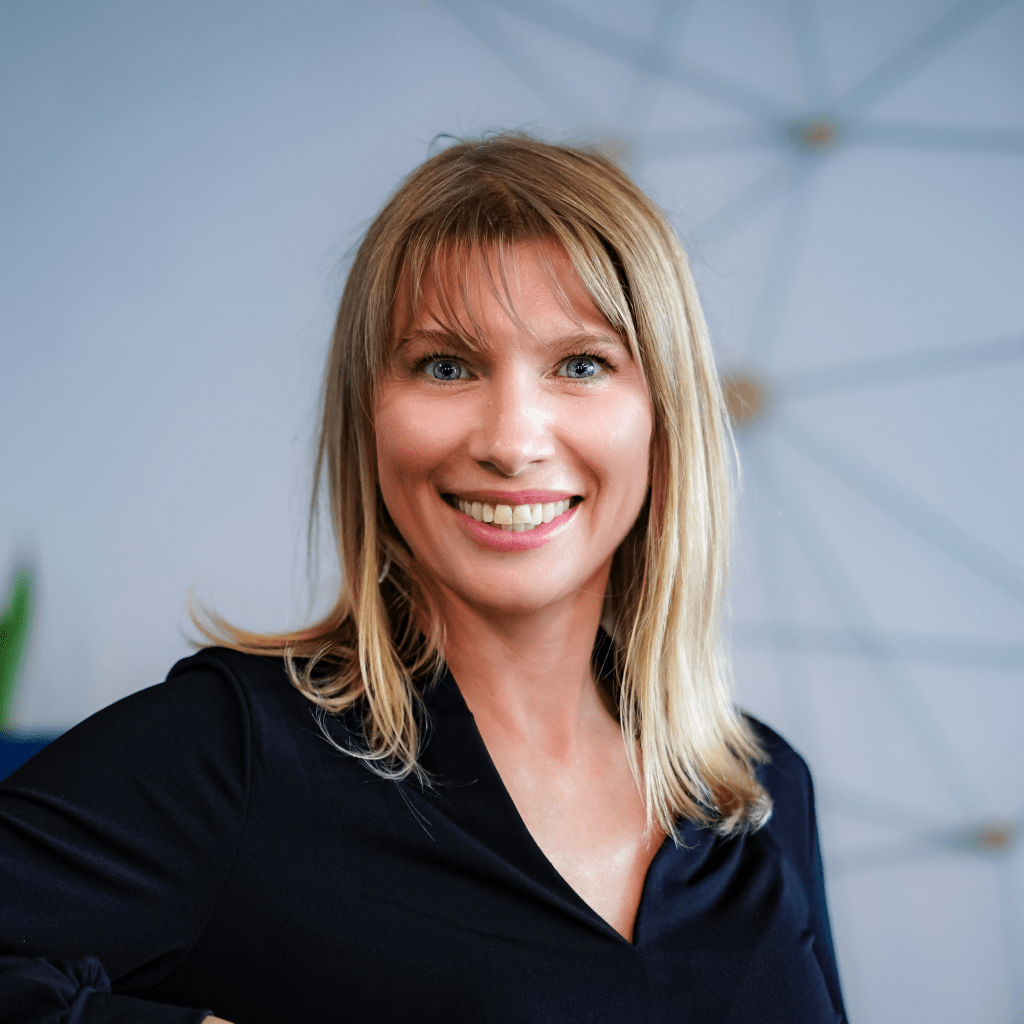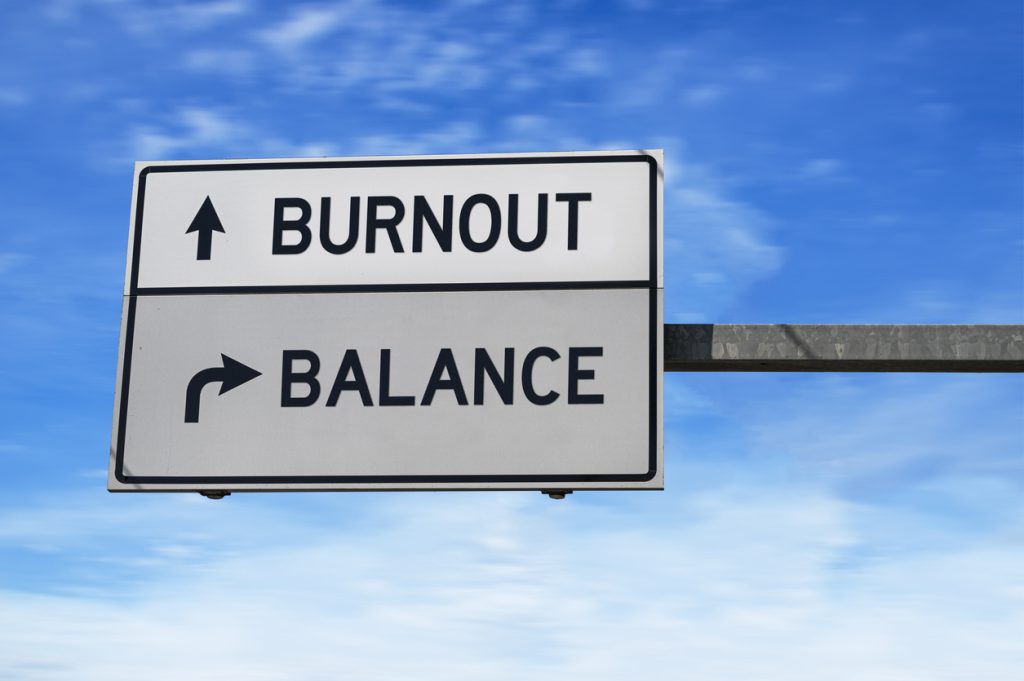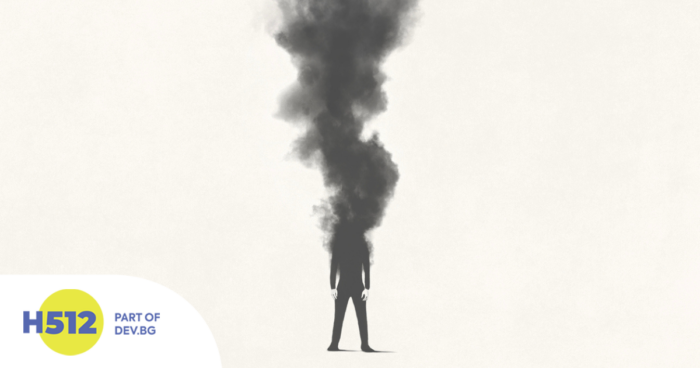Employee support programs in cases of (pre)risky mental health conditions are one of the most common fringe benefits on the H512.com job board. Some candidates seek them out on purpose, others pass them by because “I wouldn’t be in that situation”. But whatever they think, the statistics quietly scream: according to a Gallup survey, 76% of employees experience the feeling of burnout at work from time to time, and for 28% it happens very often or constantly; the WHO alarms that in 2019 nearly 1 billion people will experience burnout. people around the world suffer from mental health disorders and in the first year of the pandemic alone, depression and anxiety conditions increased by over 25%, and the American Institute of Stress estimates that burnout costs US businesses over $300 billion a year.
In the wake of COVID, employers frantically began developing strategies to deal with the new epidemic – burnout, depression, panic attacks and the like – and economic uncertainty, the war in Ukraine and radical climate change have added fuel to the fire. According to the McKinsey Health Institute, employee mental health and well-being is a top priority for 80% of HR leaders worldwide, and many have already implemented psychological support programs.
Burnout, depression, anxiety – the mental state of employees in Bulgaria
In April this year, the MindFit platform, which offers consultations with psychologists and psychotherapists as a social benefit, conducted a survey among 104 male employees in various sectors. Over 90% of respondents said they had experienced depression, anxiety, relationship or sleep problems, burnout or a panic attack.

“In Bulgaria there is a growing awareness about mental health care and free expression of emotions. However, the percentage of men who “allow” themselves to open up and show compassion for themselves is still not high. Men are, for the most part, aware of their weaknesses but ashamed of them and become argumentative if they are willing to talk about it at all. Underneath it all is a colossal fear of being judged and rejected,” says Victoria Victoria, co-founder and managing director of MindFit.
Taking care of mental health and prevention of burnout, stress and depression is the main reason employers seek MindFit’s services, with the platform’s clients being mostly IT companies, educational and NGO institutions. “If not prevented, or at least managed, these conditions are responsible for high turnover, a large number of sick days and huge losses for businesses,” adds Victoria Victoriarova.
In addition to individual psychotherapy, employers are increasingly turning to MindFit for counselling related to workplace conflict resolution, productivity, healthy relationships in hybrid work environments, diversity and continuity.
But what are the main causes of stress, anxiety, depression and burnout in the workplace?

“These are poor work processes, such as unclear boundaries in the delegation of commitments, tasks that are not within the competencies of employees, unrealistically high expectations for work results, overwork, hidden and unspoken chronic conflicts,” explains Marina Stoychovska, founder of the Center for Psychological Training and Consultancy “Amarna”. She also points to other reasons, including frequent changes in the rules and framework of work, requiring adaptation and therefore additional efforts and resources, too much routine, lack of challenges and novelties.
“The experience of anxiety and tension is also linked to a person’s personality. Burnout usually occurs under a certain combination of working conditions and personality traits.”
“Stress in itself is not a problem, as moderate stress is a natural way to adapt to change and challenging situations. However, when it becomes chronic, it can contribute to a range of psychological problems, including anxiety and depression,” adds Gabriela Gerasimova, a psychologist at the Somenso Stress Management Centre and a specialist in the MindFit network.

According to her, some of the main causes of stress, anxiety and depression at work are too much workload, too tight deadlines, lack of control and autonomy over own tasks, insufficient support from management and colleagues, lack of development opportunities.
“Individual responses to these stressors can vary and not everyone will experience mental health problems as a result of them. However, it is important that both employers and employees take these into account to prevent potential psychological distress.”
Returning to the MindFit research, we are keen to understand whether there is a strong and weak gender in terms of mental resilience – the ability to cope with and recover from stressful situations. “At this stage, there are no significant differences between the genders. This is because the foundations of mental resilience are laid by about the first seven years of human life. This has to do with the mastery of human impulses and is not about gender, but about the personality, its innate temperament and the conditions in which it developed,” says Marina Stoychowska.
According to Gabriela Gerasimova, mental resilience is influenced by hereditary, biological, social and cultural factors. This is probably why they are thought to be less resilient than men. But this difference may be due to a number of reasons unrelated to gender. For example, women are more likely to seek social support and express their emotions, while men are brought up to avoid displays of sensitivity and to solve problems on their own. This attitude can prevent many men from sharing and seeking support when they need it. On the other hand, women much more often take on the responsibility of caring for young children and elderly relatives, which increases their daily stress levels. Therefore, we should not underestimate the mental health risks for both women and men, as there are multiple factors that influence mental resilience.”
Tech companies’ toolkit for maintaining mental resilience

Psychological support and assistance programs for IT employers in this country are emerging en masse in the wake of the pandemic, and often include specialized counseling to “fend off” unhealthy mental states.
“In a very short time, we have witnessed unusual events with a major impact on mental health, such as the global COVID-19 pandemic and conflicts in neighboring regions, which have added stress and uncertainty to daily life. We launched our global employee psychological support program two years ago, and for almost a year we have been working in partnership with an external team of certified professionals in psychology, psychotherapy and coaching to provide support to our employees,” says Felicitas Lichtenberg, Head of Diversity & Inclusion at global fintech SumUp.
The programme includes therapeutic online and offline counselling with psychologists and psychotherapists related to anxiety, depression, panic attacks, feelings of isolation, loss and other emotional difficulties. The company also offers webinars focused on anxiety and stress, and practices its own Mental Talks live sessions in which employees share with colleagues their personal stories of anxiety, stress, loss, depression, and other disorders.

And more: ‘Mental health is too complex a spectrum to get the attention it needs from a single angle. As an employer, we support work-life balance and mental health through a variety of solutions such as hybrid working arrangements, flexible working hours, generous paid annual leave (25-35 days), an additional one month paid creative leave every three years in the company, co-subsidised childcare, and various ad hoc benefits, for example, additional days of paid leave for parents with distance learning young children during the pandemic. The role of a supportive team and leader is important to encourage maintaining a healthy balance – sometimes everyone needs a reminder to close the computer and ‘switch off’,” adds Adelina Pandeva, Tech Recruitment Lead.

Snapshot Games started offering employees free psychological counselling after the pandemic started in 2019, when they switched to remote working. “There was no specific reason. We just thought it might be valuable for our people. Our company has long been strongly oriented toward caring about how our employees feel. After the pandemic passed and we went back to hybrid work, we kept this acquisition,” says Desislava Zhekova, HR Manager of the Bulgarian division of the game developer.
Snapshot’s employees have the opportunity to visit a specialist of their choice once a week for an unlimited period of time, as well as to use several centres and platforms with which the company works on a voucher system in order to ensure the anonymity of the visits. But do employees benefit from these consultations? “The most important effect is not the financial one, but the talk, the attitude towards seeing a psychologist or a psychotherapist, the fact that with us this is accepted as something normal and even valuable, as self-care. Employees have said that just doing that has been a huge relief and has had an amazing effect on them. Also, when it is offered by the company, some people who otherwise would not have made up their minds start going to counselling.”

Another IT employer introducing a psychological and mental support programme for employees in the wake of the pandemic is information and analytics solutions company Experian. “Our benefits package has a Health & Wellbeing category that is dedicated to employee health and wellbeing. Along with additional health insurance, colleagues have access to free psychological, legal and financial support. Just a month ago, we also introduced a new confidential internal line with expanded options to support the emotional and mental health of the team,” says Ivaylo Bankov, HR Director. Experian’s psychological support program includes free consultations in case of personal or professional problems 24/7/365. These consultations also cover legal support for adoption, divorce, real estate and more. “We also pay special attention to managers. Every manager has the opportunity to talk to consultants and get a recommendation on cases related to the management of his team. The company also has a global internal portal for leaders where every manager can be supported with advice from a mentor. In this way, we help our managers build a culture of inclusion, friendship, mutual trust and support.”
Late last year, Experian launched the global Mental Health First Aiders programme, which trains and certifies volunteer employees to provide psychological first aid to colleagues. To date, more than 300 employees have been through the program, 17 of whom are in the Bulgarian office. The company also has a Sports & Wellbeing Committee that further supports mental health and active lifestyles with various initiatives. “In the last year alone, the committee has held over 27 events with more than 1,200 participants and a team of nearly 1,000 people in the Bulgarian office. The success of our psychological support and internal engagement programmes is also strongly demonstrated by the results of employee satisfaction surveys. For the third year in a row Experian Bulgaria is certified according to the international Great Place to Work standard, increasing its score in all five key satisfaction indicators,” adds Ivaylo Bankov.

Online mental health platforms are also a commonly used resource by IT employers. One of them is Unmind, which the international company Amdaris included in its benefits package at the beginning of this year. “The social isolation caused by the pandemic, as well as the war in Ukraine, made many of us feel unbalanced and uncertain about the future. We realised that more than ever there was a need to address our mental health and dispel the stigma around talking about this topic, because it became crystal clear that looking after the mind was as important as looking after the body. More and more people have become interested in how to achieve a better quality of life, improve relationships with others and feel fulfilled in both their personal time and at work. That’s why we offer employees free and anonymous access to the Unmind platform, through which we aim to support their overall mental well-being,” says Dennitsa Teneva, Marketing Specialist.
This “fitness for the mind” offers various tools that are used in neuroscience, cognitive behavioural therapy and positive psychology and help to improve sleep, process stress and increase attention and concentration, which also leads to greater productivity at work. “In the period 1 April – 2 July 2023, 44% of our colleagues used the platform at a benchmark between 30-35%, which is a clear sign of its success rate and usefulness,” Dennitsa Teneva concludes.

“ We have a long-standing partnership with one of the most recognizable organizational psychologists and psychotherapists, with whom we work to conduct workshops and trainings to support colleagues’ mental and emotional health. In 2022 we reviewed our wellbeing programme and introduced further enhancements. We have also launched a partnership with a psychological support platform which provides the opportunity for one-to-one sessions with a specialist of your choice from psychology and psychotherapy, ensuring complete anonymity. In addition, we offered access to a platform for meditation and improving sleep quality. This acquisition aims to provide colleagues with another tool to deal with stress and tension at work,” explains Emanuela Kozhushkova-Rangelova, Chief People Officer.
Other tools the company uses to support employees’ mental health include up to 8 days paid leave on top of the core 25 days and quarterly wellbeing afternoons, or an extra half day off each quarter to relax. “Our aim is to enable all colleagues to take time for themselves, this also has a direct bearing on job satisfaction. We also work with external consultants including coaches, sleep quality consultants, healthy eating consultants and others. The sessions we run with their help support our colleagues’ personal development, helping to improve work-life balance, which we believe plays a key role in achieving good mental health,” adds Emanuela Kozhushkova-Rangelova.

US transportation services company Uber works with two global platforms, and their solutions offer a holistic spectrum of services to support mental health. They are created by clinical experts in neuroscience, cognitive behavioural therapy, positive psychology, sleep and concentration and are used free of charge by both company employees and their life partners. “We provide these services as part of our care for people and to support our belief in accepting our colleagues in their many life roles, the balance of which is daily and sometimes challenging. Just as we take care of our physical health and prophylactically check on the state of our bodies, we believe it is necessary to take care of our emotions and psyches,” says Cornelia Venova, Site Operations Officer.
In addition to a variety of resources for a healthier and happier mind through these platforms, Uber employees can connect with a psychologist or coach in their native language. “An interesting solution to support parents with us is free access to another platform that provides help to colleagues in their role as mothers and fathers. We know that parenthood is a source of both great joy and great stress in a partnered couple or in a person who has decided to give birth or adopt a child alone, and this platform helps parents to fully and mindfully enjoy the new family member through the different stages of the little one’s growth,” adds Cornelia Venova.
How to help (yourself) with burnout?
Despite this variety of tools to improve mental health, there are cases where an employer does not offer such benefits, or a colleague quietly burns out. According to experts, the most common symptoms of burnout include: physical and emotional exhaustion, lack of enthusiasm and initiative, cynicism and negativity at work, reduced efficiency, distancing from work, difficulty concentrating, isolation from colleagues, irritability, frequent lateness. So if you notice several of these symptoms clustered together in the colleague at the next desk, it’s a sure sign that he needs help.

Sure, we all want to push the button and have the problem disappear like an app, but is there an anti-burnout prescription and how can we take care of ourselves? “Sometimes there is something we can do to prevent or get rid of burnout, but when it depends on external circumstances, we may be helpless if they can’t change. Therefore, the causes of the burnout need to be identified in the first place and removed if possible. Then it is important to seek an adequate balance between work and rest. It should be remembered that working hours are what they are because they are judged against what is healthy for the person and most efficient for the work process. Rest needs to be of good quality, not involving psychoactive substances, but socialising, exercise and passive relaxation. The opportunity to comment on work problems also has a bearing on overcoming burnout,” says Marina Stoychowska.
Gabriela Gerasimova supports her words, “Since burnout is mainly caused by chronic stress, good stress management is key to preventing it. What you can do to protect yourself from chronic stress is to make time for rest and hobbies, spend more time with family and friends, get enough sleep, eat more plant-based and minimally processed foods, and exercise daily. At work, try to limit stressors. Seek support from colleagues and your line managers if you feel your stress is too much. Give yourself a break and sort out your priorities. And if you feel you can’t cope on your own, seek psychological help.”
According to Viktoria Viktorova, employers have more they can do to strengthen their employees’ mental resilience: “They should regularly consult their people’s preferences. Many companies not only don’t interview employees about their reasons for leaving, but actively avoid finding out what they are because they don’t feel ready to deal with something potentially huge. They also try to treat their employees as a homogeneous mass, especially when it comes to working from home versus working from the office. There are jobs and positions where productivity will continue to be higher from home, as well as those that require more collaboration or access to resources located in the office. As with anything else, our advice would be to treat individuals as individuals and not as lines in a table.”

He adds that it’s no coincidence that the Happiness Manager role, known in this country as the People Manager, has emerged to be responsible for employee happiness and satisfaction, and that a trend of team-building events aimed at improving the mental health of teams is emerging, often involving mystery trips, digital detoxes, art retreats and more.
That’s all great, but let’s not kid ourselves – mental health is still taboo in this country. “The topic is increasingly commented on among people, but not among institutions. We professionals need to be more proactive in giving adequate information about psychotherapy and mental health care. We need this topic to be part of our education system, and we need family physicians to refer for appropriate mental health care when needed. The growing practice of employers supporting their employees in mental health care also contributes positively to this topic not being taboo,” says Marina Stoychowska.
According to Gabriela Gerasimova, breaking the taboo around the topic of mental health is especially important to prevent problems from getting worse: “Neglecting mental health worsens the quality of life of both people who need psychological help and their loved ones. In order to have better awareness and prevention, there is a need for education campaigns and media initiatives to provide information about mental health. Informative programmes in schools and talking openly about the issues would also go a long way in tackling the taboo.”
Fortunately, IT employers in Bulgaria are slowly but surely debugging this taboo as well, and the working examples and high results they are achieving in an extremely intense work environment are a great rock for other industries to step on. Because the more mentally healthy employees an economy has, the more resilient to stressors the whole society will be.


 Publish date: 11 September, 2023
Publish date: 11 September, 2023


 Hybrid
Hybrid